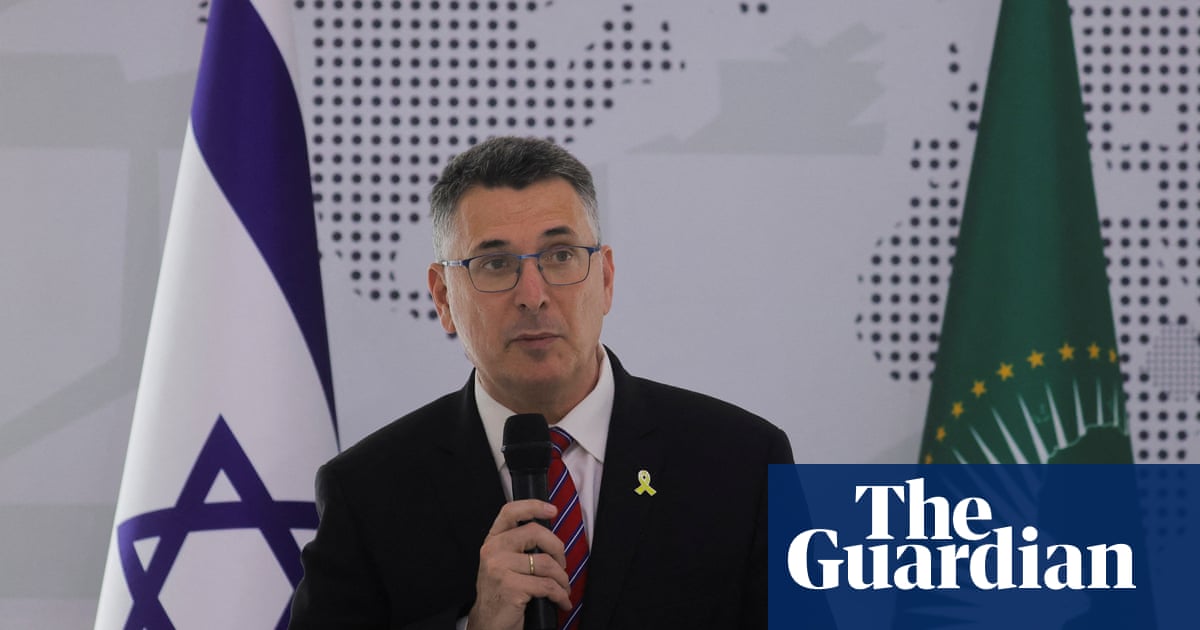Talks will start on Friday at an official level about the possibility of recognising the state of Palestine.A senior Arab diplomat in London said:“If you asked me a fortnight ago if there will be wider recognition [of Palestine] by western states I would have said no, but now I am not so sure.”The UK foreign secretary, David Lammy,suspended trade talks with Israel on Tuesdayand described its refusal to lift a blockade of aid into Gaza as “abominable”.Lammy spoke to the Israeli foreign minister, Gideon Sa’ar, on Wednesday about the barriers blocking aid.The French foreign minister, Jean-Noël Barrot, said this week: “We cannot leave the children of Gaza a legacy of violence and hatred. So all this must stop and that’s why we are determined to recognise a Palestinian state.”The developments come ahead of a UN-sponsored conference in New York starting on 17 June, co-hosted by Saudi Arabia and France.
Officials at the conference will have to discuss the context for such a recognition of the state of Palestine. One question is whether there would need to be parallel recognition ofIsraelby states such as Indonesia and Saudi Arabia, something that is regarded as impossible in the absence of a clear path to a two-state solution.Israel is adamantly opposed to a two-state solution. The new US ambassador to Israel, Mike Huckabee, in an interview in Haarezt newspaper resisted the idea, saying: “I am asking whether there truly needs to be a Palestinian state.”One of the issue under discussion is whether recognising Palestine would have implications for companies or individuals who trade in the occupied territories.UK ministers are not expecting to announce further measures in the near future, but neither Jordan nor the UK has ruled out using air drops as was attempted last year.
MPs are concerned that arms companies may be using the partial nature of the arms export ban imposed last September by the UK to send weaponry to Israel for use in Gaza, in breach of an undertaking by ministers.
Three ministers responsible for arms exports toIsraelhave been summoned by parliament’s committee overseeing UK exports to explain possible loopholes in the rules.
Liam Byrne, the chair of the business select committee ordered the trade minister, Douglas Alexander, and the relevant ministers from the Foreign Office and Ministry of Defence to offer urgent explanations.
In his letter, Byrne raises concerns about statistics published on Friday that showed that in the fourth quarter of 2024 – after Labour’s partial arms export ban to Israel was imposed – the UK government approved licences for £127.6m of military equipment to Israel. This is greater than the combined total for 2020-23, according to Campaign against the Arms Trade.
Challenged on these figures by the independent MP Zarah Sultana in the Commons on Tuesday, the foreign secretary, Lammy said he did not recognise the number and accused her of sensationalising the issue. He assured MPs: “Arms are not getting to Israel that could be used in Gaza.”
However, the latest figures show the government authorised more than £61m in single-issue licences for military goods with an end user in Israel. These included licences for goods categories covering targeting systems, munitions and military aircraft parts.
In his letter, Byrne pointed out that ministers assured MPs that the ban covered “equipment that we assess is for use in the current conflict in Gaza, such as important components that go into military aircraft, including fighter aircraft, helicopters and drones, as well as items that facilitate ground targeting”.
He has asked for an explanation for the increase and the proportion of arms going to the Israeli state.
He has also asked for the release of statistics on the number of licences that have been changed to remove Israel as the end user.
The high court last week conducted a four-day judicial review of the UK government’s claim that it was lawful for the UK to sell components for F-35 fighter jets indirectly to Israel even though there was an acknowledged ministerial acceptance that those parts could be transferred for use in planes to bomb Gaza.
